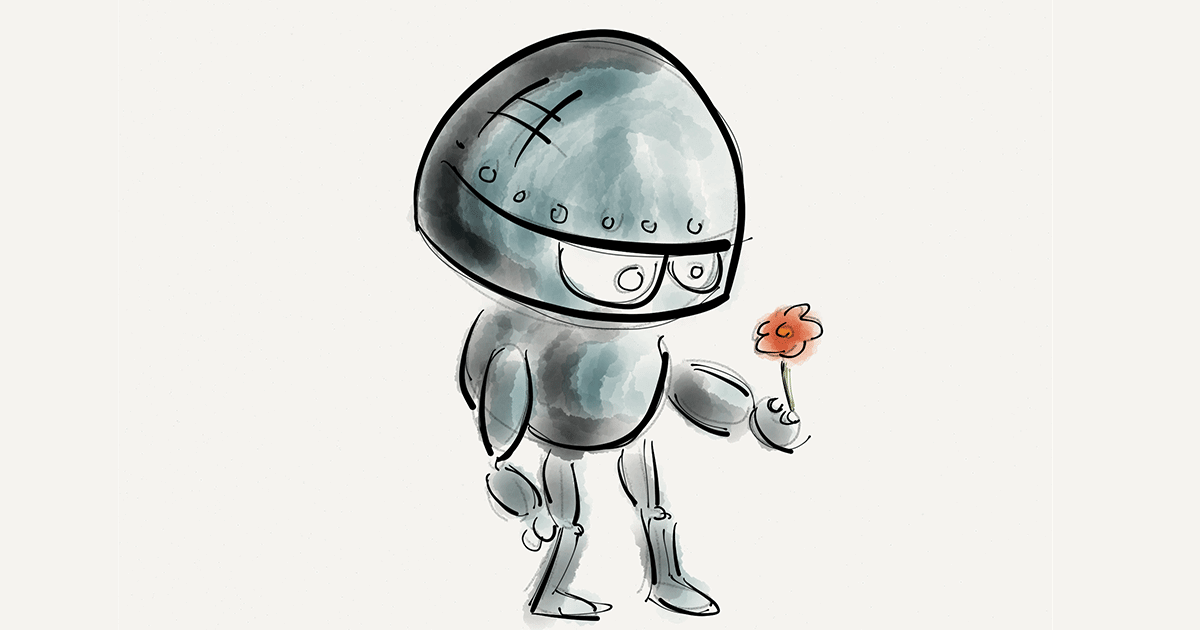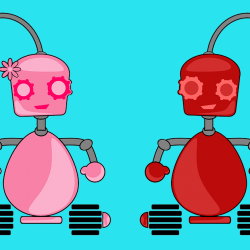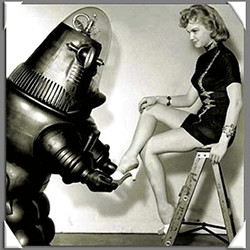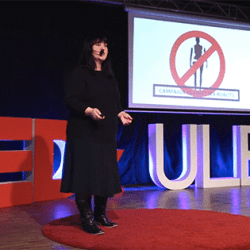Sexbot Perspectives: Robot Sex Workers Will Help Human Relationships
Researcher envisions sex-positive future with eroticized machines.

As part of our ongoing “Sexbot Perspectives” series, we’ve asked several experts this question: What is the potential or the possible pitfalls of developing sex robots? Our aim: To create dialogue and help shape the best possible future—one that will be deeply influenced by breakthroughs in artificial intelligence and robotics.
Julie Carpenter, a research fellow at California Polytechnic State University, specializes in human-robot interaction. She’s perhaps best known for her study of soldiers and their emotional attachment to bomb disposal robots.
Earlier this year we spoke with Carpenter about her upcoming book chapter for MIT Press, “Deus Sex Machina: Loving Robot Sex Workers, and the allure of an insincere kiss” (working title). Today, while she acknowledges it will take time for humans to accept sexualized robots, she’s optimistic that they will benefit humanity.
[box type=”shadow”]Some of the pitfalls and potential of sex robots will be similar to patterns we can see in other emerging technologies that can be used for sexual pleasure and/or intimacy alone, or with other human participants. For example, like other new technologies, it will take time not only to put large development and manufacturing infrastructures in place, but for society at large to accept them as viable options as sexual tools, partners, or toys.
In addition, we aren’t quite there yet in developing highly humanoid robots that are truly lifelike in appearance or behaviors, which may matter to some people, depending on their preferences and needs. We also don’t have laws or policies in place dealing with matters such as designing/selling robots that represent distasteful or unethical personas, or if users jury-rig sexualized robots to have these personas, such as children, or animals. Will any of the laws and cultural morals similar to those protecting human and animal consent apply to robot design if they are used in a sexual context? Why or why not?
I believe there is considerable potential for robot sex workers to enhance the lives of many people. There will be investigations of robot sex workers in therapeutic situations, physically, emotionally, and sexually. Robots enabled with the ability to please or enhance the sexual pleasure of people can simply be enjoyed as an enjoyable alternative to traditional sex toys, and even other humans.
These robot sex workers can potentially mitigate very real sexual problems for people, such as acting as alternative sexual and even emotional outlets for people who have social anxieties, physical disabilities, are geographically isolated, or are otherwise unable to be with or are disinterested in a human partner for whatever reasons.
Robot sex workers can also help people stay in a human-human committed relationship and still satisfy their sexual needs (either within the relationship with the human/s, or standalone). For example, imagine a long-term committed relationship where one partner becomes ill or otherwise unable to participate in the sexual aspects of a relationship. In this case, if the couple still wanted to maintain their commitment to each other for their own reasons, a robot sex worker could be considered an option for relief and perhaps even emotional support for the caregiver in the human-human relationship, and/or the ill person.
Or, a robot sex worker could potentially act as a teleoperated medium for human sexual partners at a distance, with the robot acting only semiautonomously, controlled by a human. I have great hope for the sex-positive possibilities of including these complex systems in our environment with the caveats that we are responsible about research and responsiveness to those findings, even once these robots are integrated into our social norms as viable options.[/box]
Image source: bamenny
Leave a reply
You must be logged in to post a comment.

















